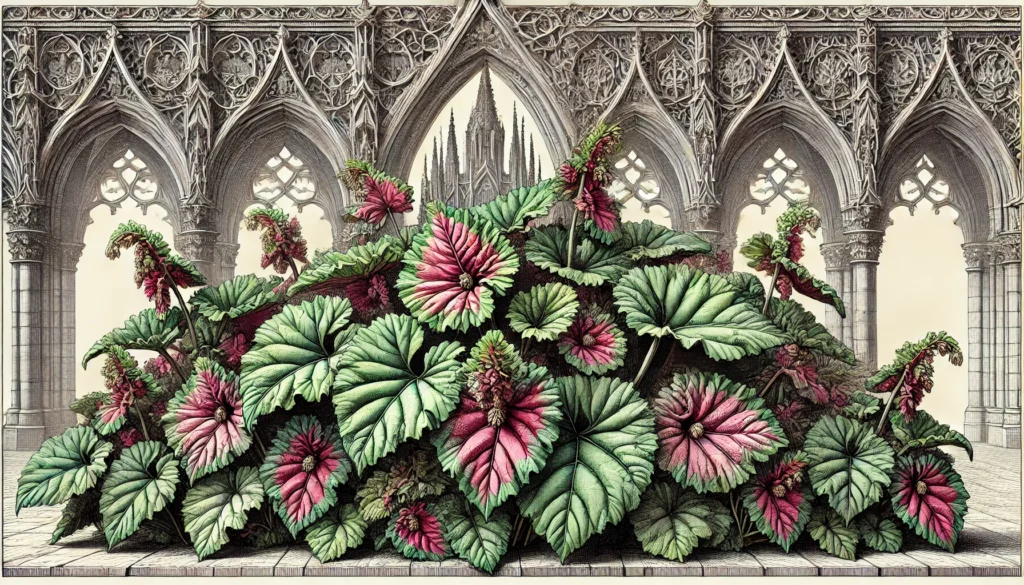

Home » Cat Plants » Does the Peace Begonia Plant Pose a Toxic Threat to Cats?

The Peace Begonia (Begonia x semperflorens-cultorum), a popular houseplant known for its vibrant flowers and lush foliage, can indeed pose a toxic threat to cats if ingested. This plant is commonly found in homes, gardens, and office spaces due to its attractive appearance and easy care requirements. However, cat owners should be aware that begonias are toxic to cats and can cause various health issues if consumed.
Ingestion may cause mild gastrointestinal upset, but is generally not life-threatening.
Ingestion can result in mild symptoms like vomiting, diarrhea, or drooling. Rarely fatal but may require veterinary care.
Eating these plants can lead to more pronounced symptoms like abdominal pain, lethargy, or difficulty breathing. Veterinary intervention may be necessary.
Ingesting even small amounts can cause severe symptoms like organ damage, seizures, or cardiac failure without rapid treatment.
All parts of these plants are extremely poisonous to cats and can quickly lead to death, even with immediate veterinary care.
** Please note: Please note that toxicity level can vary based on the amount ingested and the specific cat. It's always best to keep these plants completely inaccessible to cats and seek immediate veterinary care or call the poison hotline if you suspect your cat has ingested any part of a toxic plant.
If your cat has ingested any part of a Peace Begonia plant, it may experience various symptoms due to the toxic compounds present in the plant. These symptoms can range from mild to severe, depending on the amount consumed and the cat’s individual sensitivity. Some common signs of begonia poisoning in cats include:
In severe cases, begonia toxicity can lead to more serious complications such as kidney failure, especially if a large amount of the plant has been ingested.
If you suspect your cat has consumed a Peace Begonia and is showing signs of toxicity, it is crucial to seek veterinary care immediately. Your veterinarian will likely follow these steps to diagnose and treat your cat:

A: Yes, the Peace Begonia Plant (Begonia spp.) is toxic to cats. It contains insoluble calcium oxalates, which can cause irritation and discomfort if ingested.
A: Symptoms of Peace Begonia poisoning in cats include vomiting, drooling, mouth irritation, and difficulty swallowing. In severe cases, swelling of the mouth and throat may occur.
A: Even small amounts of the Peace Begonia Plant can cause significant discomfort to cats due to the calcium oxalate crystals present in the plant.
A: If your cat consumes any part of the Peace Begonia Plant, rinse their mouth with water and contact a veterinarian for further guidance. Symptoms are typically painful but not life-threatening.
A: Peace Begonia poisoning is rarely fatal, but it can cause significant pain and discomfort. Veterinary care can help alleviate the symptoms and ensure a quick recovery.
A: Yes, safer alternatives include Spider Plants, Boston Ferns, and Areca Palms, which are non-toxic and safe for cats.
The peace begonia, native to Brazil, was discovered by Europeans in the late 17th century. Named after Michel Bégon by botanist Charles Plumier in 1690, it began its journey from wild species to beloved ornamental plant. Over time, horticulturists developed numerous hybrids and cultivars.
Gaining popularity during the Victorian era as houseplants, peace begonias have since become staples in gardens and indoor spaces worldwide. Known for vibrant flowers and glossy leaves, they continue to captivate gardeners with their colorful blooms and easy-care nature, showcasing their enduring appeal through the ages.
Please note: The information shared in this post is for informational purposes only and should not be considered as veterinary medical advice.
🐾 A hilarious or heart-melting cat video
🐾 Our latest paws-on review of a cool cat toy